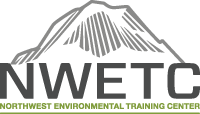**This course was presented as a live webinar in six 2-hour sessions. **
Purchase includes 10 files:
- Audio/Video recording of six 2-hour sessions,
- Two course workbooks,
- Exercise packets for each part
After purchase, you will receive instructions regarding how to access files.
A well designed database can increase the efficiency and can eliminate errors in your data storage protocols. By reducing redundancy, and eliminating the potential for human error, you can ensure that your data remains consistent and valid, and always up to date.
Access databases provide more than just a place to store your data. By creating a custom application that is specifically tailored to your project, an Access database creates the foundation through which you will quickly enter information, and more importantly, quickly retrieve answers to your questions about the data and build reports outlining the results.
Part 1 is designed for participants who wish to gain beginning to intermediate skills in using Microsoft Access to build relational databases for collecting, organizing, and analyzing their environmental data. It is applicable to anyone that manages environmental resources, sets or responds to environmental policy, or needs to evaluate regulatory compliance. This comprehensive class uses Access 2010 to cover in-depth the use of Tables, Queries, Forms, Reports, and Macro objects through extensive hands-on exercises. These Access database subjects are taught using real-world environmental examples with actual field data. This class is recommended for anyone desiring a concentrated exposure to Access training in a powerful tsix-hour class.
Part 2 will build on the skills introduced in Part 1 by creating end-user application examples that bring the newly learned elements together. Access analytic tools, PivotCharts, and PivotTables will be introduced, and an SQL primer will be included.
After completing this course, participants will be able to:
- Apply complex query functions to databases
- Create and design pivot charts and pivot tables
- Perform complex queries using multiple tables
- Create tools for forms and reports
- Build multi-step macros for automating tasks
